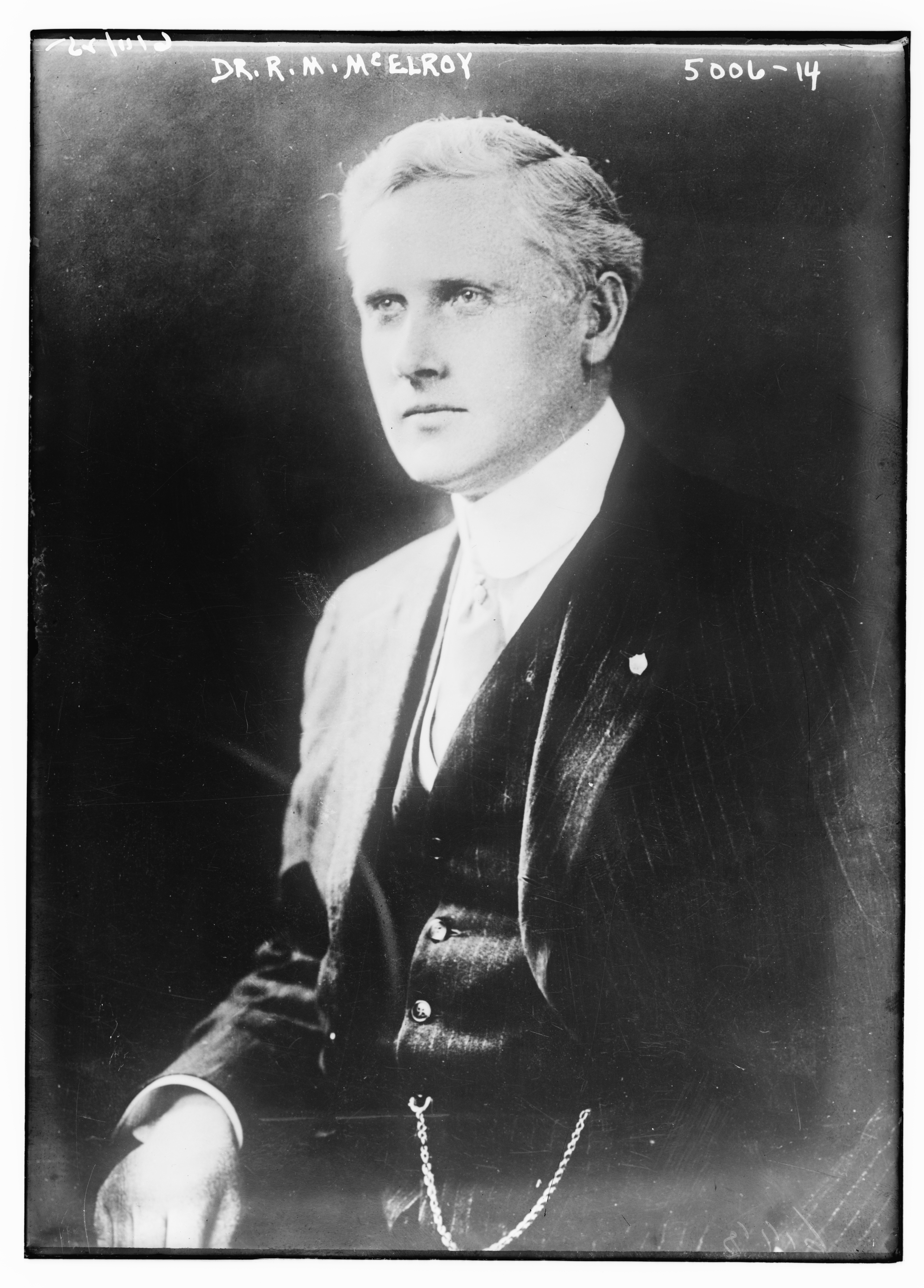|
Robert McNutt McElroy
Robert McNutt McElroy (December 28, 1872 in Perryville, Kentucky - January 15, 1959 in Līhu'e, Hawaii) was a professor of history at Princeton University. He became a jingoistic advocate of a strong national defense during World War I, working with the Republican Party and the National Security League (NSL). A popular historian in his day, he published biographies of Grover Cleveland and Jefferson Davis, and respected histories of the states of Kentucky and Texas and the conquest of the American West, none of which are much cited today. Biography McElroy was born in Kentucky to William Thomas Eliza Casseday McElroy. He studied at the University of Leipzig, University of Berlin, Oxford University, and St. John's University, Shanghai, China. He married Louise Robinson Booker McElroy (1874–1942) on May 21, 1900; they had two daughters, Katharine Louise McElroy Kent (1902–1986), and Elizabeth Hunt McElroy (1901–1965). In 1898–1916 McElroy was a professor of history at Pri ... [...More Info...] [...Related Items...] OR: [Wikipedia] [Google] [Baidu] |
Robert McNutt McElroy In 1919
The name Robert is an ancient Germanic given name, from Proto-Germanic "fame" and "bright" (''Hrōþiberhtaz''). Compare Old Dutch ''Robrecht'' and Old High German ''Hrodebert'' (a compound of '' Hruod'' ( non, Hróðr) "fame, glory, honour, praise, renown" and ''berht'' "bright, light, shining"). It is the second most frequently used given name of ancient Germanic origin. It is also in use as a surname. Another commonly used form of the name is Rupert. After becoming widely used in Continental Europe it entered England in its Old French form ''Robert'', where an Old English cognate form (''Hrēodbēorht'', ''Hrodberht'', ''Hrēodbēorð'', ''Hrœdbœrð'', ''Hrœdberð'', ''Hrōðberχtŕ'') had existed before the Norman Conquest. The feminine version is Roberta. The Italian, Portuguese, and Spanish form is Roberto. Robert is also a common name in many Germanic languages, including English, German, Dutch, Norwegian, Swedish, Scots, Danish, and Icelandic. It can be use ... [...More Info...] [...Related Items...] OR: [Wikipedia] [Google] [Baidu] |
